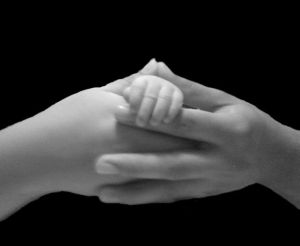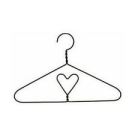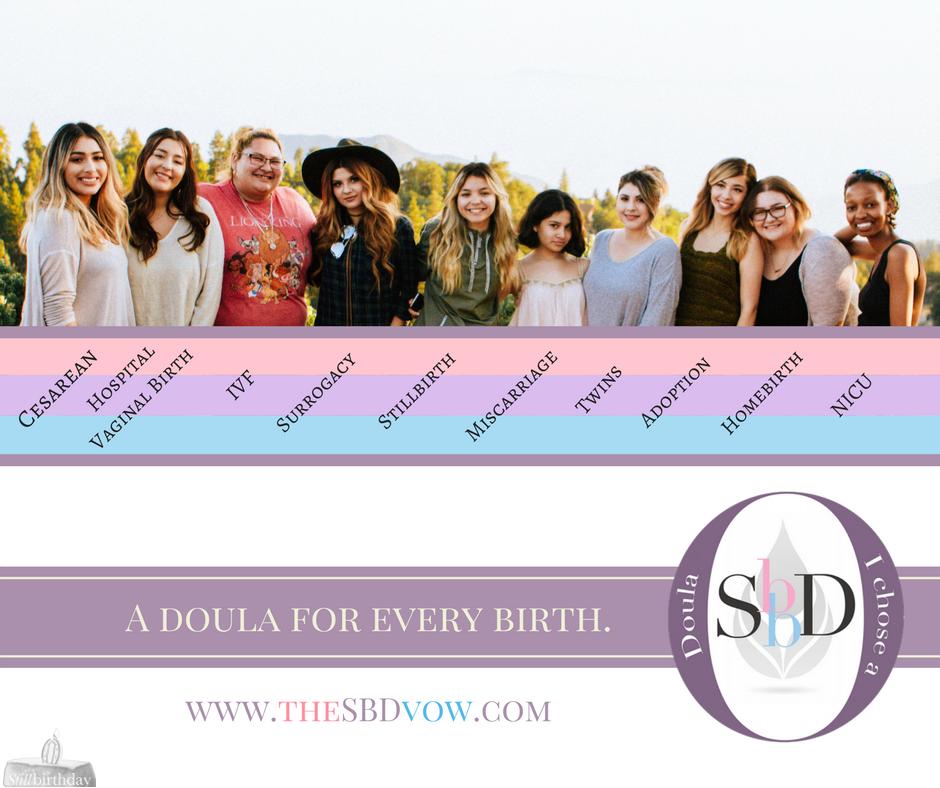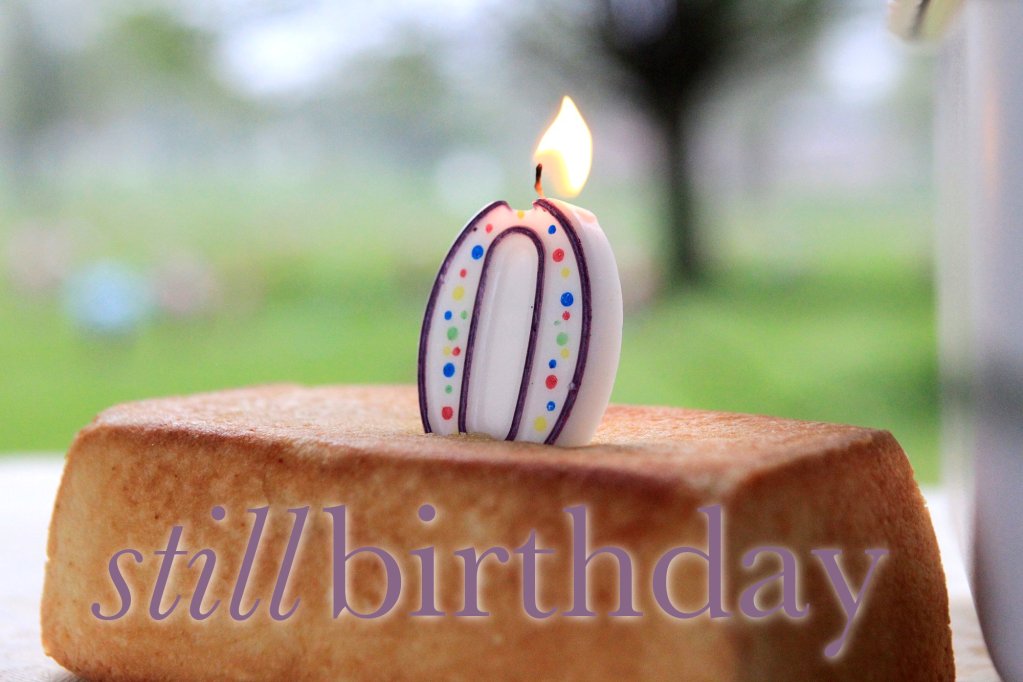As a new loss mom, I faced many opinions from others, about what my loss meant, how I could have prevented it, how I couldn’t have prevented it, and how I should respond to the situation. You can read about some of those first reactions in Come on Home.
After sifting the loving comments from the negative ones, separating the positive expressions from the hurtful ones, clinging to the beautiful sentiments and releasing the harmful ones, reaching out to compassionate loved ones and explaining truth to the ones who inflicted hurt (intentionally or not), I began preparing for the reality of stillbirthday.
Since stillbirthday launched six months ago, I have been presented with several different circumstances and issues. I handled each one prayerfully and carefully, but silently. I did not draw attention to any of these issues, because I didn’t want loss moms to suffer having to learn what I was enduring, and because I didn’t want my loved ones to worry and to try to persuade me, for my benefit, to shut stillbirthday down. Staying silent out of calculation but also out of these concerns, I endured these attacks without involving anyone else:
- people wanting me to explain elective abortion as if it were the same exact thing as pregnancy loss. The two are not the same, and neither the pregnancy loss mother nor the electively aborting mother (for any reason) deserve to have their experiences considered to be exactly the same.
- people wanting me to remove any aspect of my Christian faith from stillbirthday. Stillbirthday is accessible for every loss mother – the point of stillbirthday is so that every loss mother can receive the support she needs. However, I am Christian. It would be impossible for me to remove my Christian faith from stillbirthday. It is founded on it.
- people willing to list their services at stillbirthday, in one capacity or another, for the sole purpose of using stillbirthday as an advertising front – meaning, that they planned on creating an ultimatum for the loss mother, making her purchase their product or service in order to receive the care that she deserves and intends to get through stillbirthday. These people, as their intentions are discovered, are removed from stillbirthday.
- people stealing the name of stillbirthday, and people stealing my work. There is a copyright agreement at the bottom of the blog. It has been up since the beginning of stillbirthday. All information is freely accessible to any loss mother. To steal one piece of my work and claim it as your own takes the loss mom away from the possiblity of receiving additional support through stillbirthday. Don’t lead her away from the support you don’t even know she may need or want. Link back to stillbirthday. It’s that simple.
- peple trying to discredit the value of stillbirthday, through publicly sharing mixed up messages from old arguments had with any of the people listed at stillbirthday. There are over 250 representatives of stillbirthday, from the doulas and mentors to the prayer team, the coordinators of our Love Cupboards and the people who’ve committed to spreading the word about it. We all – every one of us – has a past, and I’d bet we each have a past that we wouldn’t want rubbed back in our faces when we are moving forward to do good. Accountability is important, when it is applicable, but so is forgiveness, when it is applicable.
- people saying that the emphasis of stillbirthday – and any other pregnancy loss support program, organization, group or resource – is on death, dying, the past, and not moving forward. That the very fact that stillbirthday exists speaks to my own inability to move past my loss, and that those who move on silently in their grief, move on better. This is a misconception, seated squarely in discomfort. This discomfort speaks to the way society perceives pregnancy loss. It is not a religious or a political opinion – it is a familial, a personal, a maternal truth: the life of our children matter, regardless of the duration of their life. I serve to speak for the life of my child, and I speak this truth into the hearts of mothers both before and after they experience loss, so that they too can trust that honoring their children is not about lingering on death, but on recognizing the reality of death, and about savoring the reality of life.
Loss moms, isn’t losing our children enough? Why do we have to face hurtful comments from our loved ones, or from others? Why do we have to teach them how to speak to us, how to treat us, how to care for us? During such an excruciating time, why are we the ones who are stretched to offer grace to those who, intentionally or unintentionally, break our hearts even further?
And, even after all that we sift through personally, isn’t it enough to say that we want to do something that speaks life into mourning? When I put stillbirthday together, shouldn’t that have been the end of the offense?
Loss parents, when we brush ourselves off and determine to do something productive with our heartbreak, why do we have to endure even more struggle, hardship, hurt, and heartbreak?
Are our well-meaning loved ones right? Should we close up shop and silently move on?
Or, is there something else God may want us to learn through it all?
I propose that it is because we are doing something extremely valuable, not only for our fellow brothers and sisters of loss, but for the eternal kingdom, that we are so repeatedly tested, stretched, crushed and broken.
In Matthew 10:7, Jesus instructs us to go out and proclaim that heaven is near, and in the verse that follows, He reveals the amazing power we have, through Him, to do this. This power includes addressing people who once felt isolated and abandoned, and letting them know that they are not alone. This power includes speaking love and life into those so broken hearted and weary that they are spiritually dead inside. This power includes speaking truth to those who do not know it. This power includes casting out demons.
The seventy-two returned with joy, saying, “Lord, even the demons are subject to us in your name!” (Luke 10:17)
So, what are demons?
Demons are spiritual forces serving to prevent us from speaking the truth of God and fulfilling His purposes.
Paul tells us:
Finally, be strong in the Lord and in his mighty power. Put on the full armor of God, so that you can take your stand against the devil’s schemes. For our struggle is not against flesh and blood, but against the rulers, against the authorities, against the powers of this dark world and against the spiritual forces of evil in the heavenly realms. Therefore put on the full armor of God, so that when the day of evil comes, you may be able to stand your ground, and after you have done everything, to stand. Stand firm then, with the belt of truth buckled around your waist, with the breastplate of righteousness in place, and with your feet fitted with the readiness that comes from the gospel of peace. In addition to all this, take up the shield of faith, with which you can extinguish all the flaming arrows of the evil one. Take the helmet of salvation and the sword of the Spirit, which is the word of God.
And pray in the Spirit on all occasions with all kinds of prayers and requests. With this in mind, be alert and always keep on praying for all the Lord’s people.
Paul continues, and I ask that you, fellow loss parents, consider this my request to you as well:
Pray also for me, that whenever I speak, words may be given me so that I will fearlessly make known the mystery of the gospel, for which I am an ambassador in chains. Pray that I may declare it fearlessly, as I should. (Ephesians 6:10-20)
For I am convinced that neither death nor life, neither angels nor demons,neither the present nor the future, nor any powers, neither height nor depth, nor anything else in all creation, will be able to separate us from the love of God that is in Christ Jesus our Lord. (Romans 8:38)
The truth that I have learned through my pregnancy loss is that my baby is with God – and, God is with me. Therefore, as I speak to the validity and the reality of my baby, and the validity and the reality of God, I know I am not alone:
Though one may be overpowered, two can defend themselves.
A cord of three strands is not quickly broken. (Ecclesiastes 4:12)









